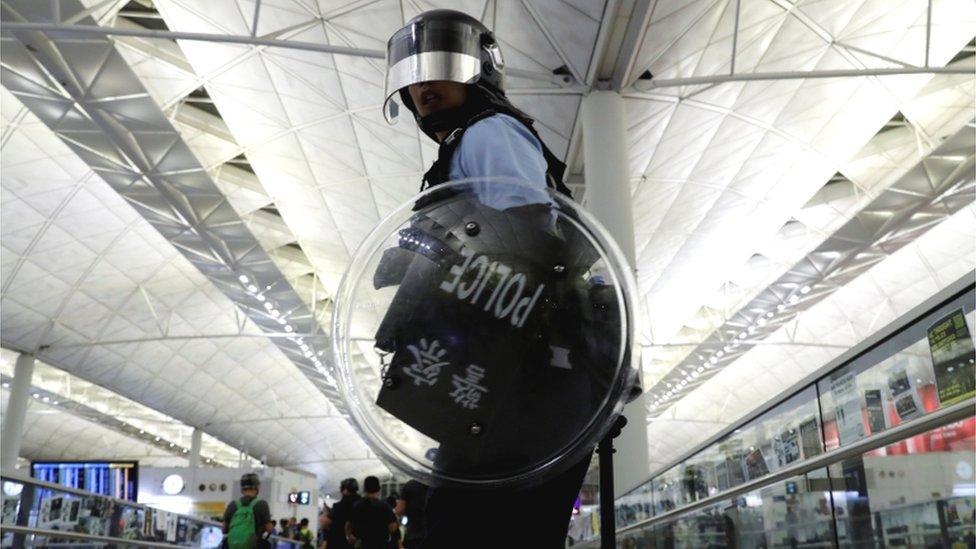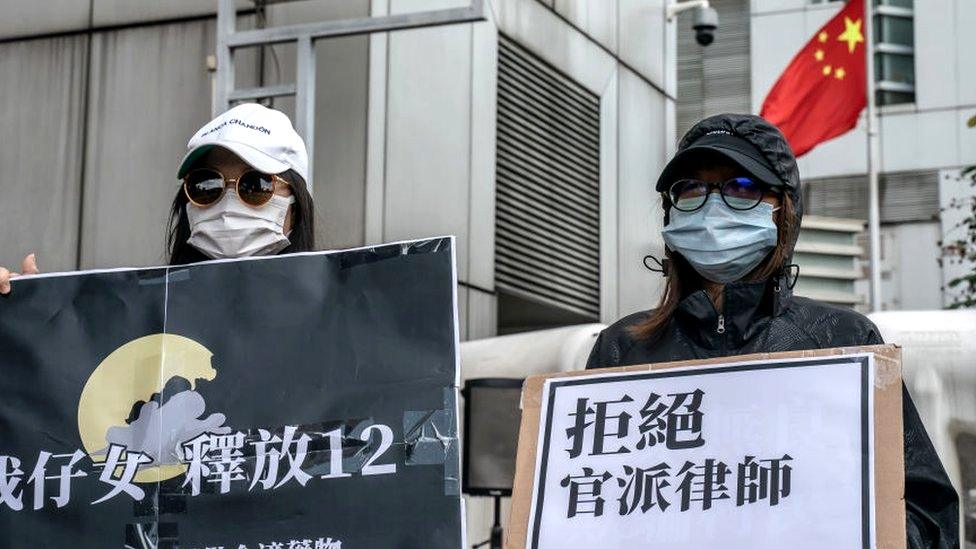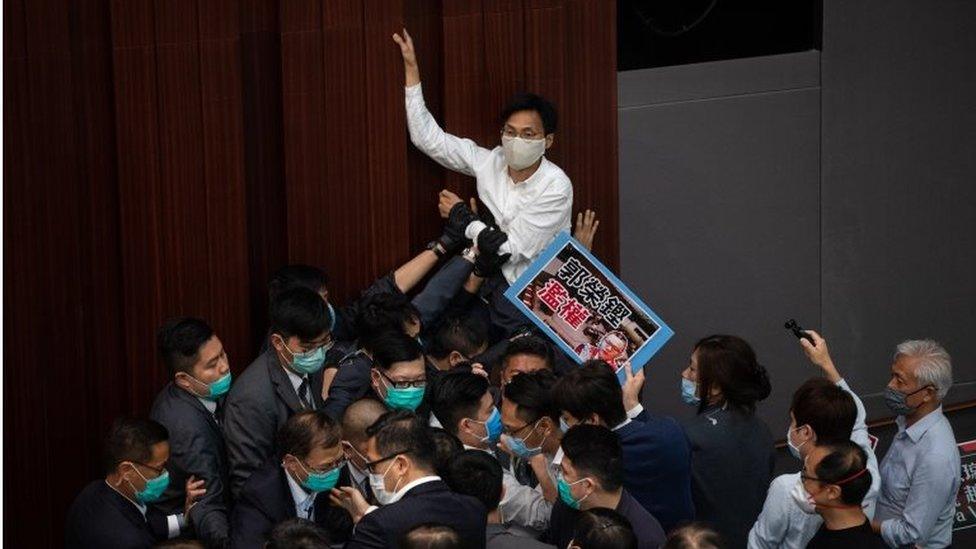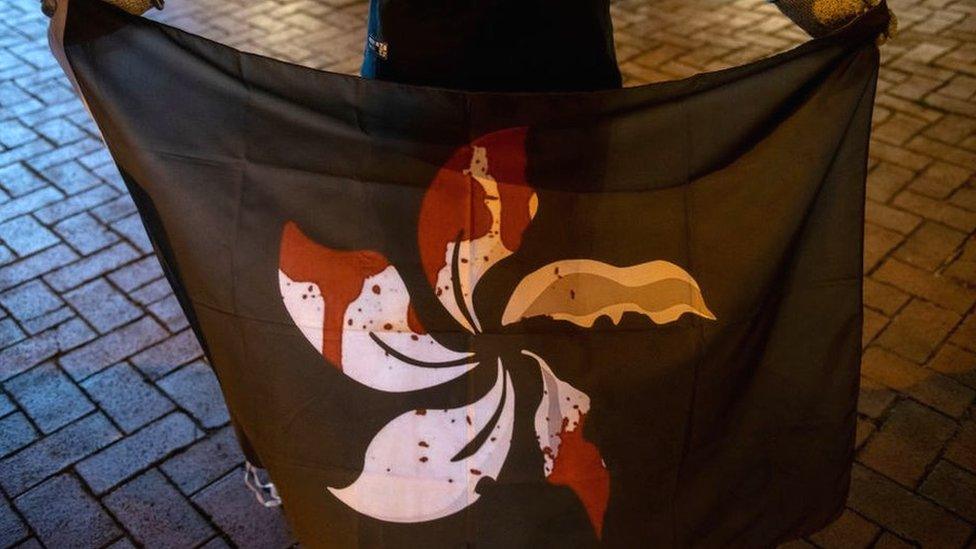Hong Kong: Snitch hotline gets more than 1,000 calls
- Published

Hong Kong police have arrested several activists since the national security law came into force earlier this year
Hong Kong's new hotline to report breaches of the controversial national security law has received more than 1,000 calls within hours of going live.
Residents can anonymously send in images, audio and videos if they suspect someone has violated the law.
The law, introduced earlier this year, criminalises secession, subversion and collusion with foreign forces.
It has already led to several arrests of activists, and has silenced protesters.
The maximum punishment under the law is life in prison.
Hong Kong police said they had received more than 1,000 tips via the hotline by Thursday evening, according to reports in local media. Residents can submit the information via email, text or WeChat, the mainland's most popular messaging app.
'The cost of protesting has been enormous'
Opposition politicians and rights groups warn that the service could be used to target those with opposing political views.
"By encouraging people to report on their friends and neighbours, the Chinese government is replicating in Hong Kong one of its most successful tools for social control: an informant culture," senior China researcher at Human Rights Watch, Maya Wang, told the BBC.
"This is one of many chilling recent developments in Hong Kong, where the authorities are pulling out new tools to punish and tame the city's pro-democracy movement."
Beijing has continued to tighten control of the city under the national security law. China argues the legislation is needed to tackle unrest and instability following months of protests demanding more democracy and less Chinese influence.
But the law has been widely condemned by western governments and human rights groups, with critics saying it ends freedoms guaranteed for 50 years after British rule ended in Hong Kong in 1997.
After it was introduced in June, a number of pro-democracy groups disbanded out of fears for their safety.
Last week, teen activist Tony Chung was charged under the national security law, days after he was detained outside the US consulate. Mr Chung, 19, had reportedly planned to enter the consulate and claim asylum.
Earlier this week, seven pro-democracy politicians in Hong Kong were arrested over scuffles that occurred with pro-Beijing lawmakers in the city's Legislative Council in May.
- Published5 November 2020

- Published1 November 2020

- Published19 March 2024
